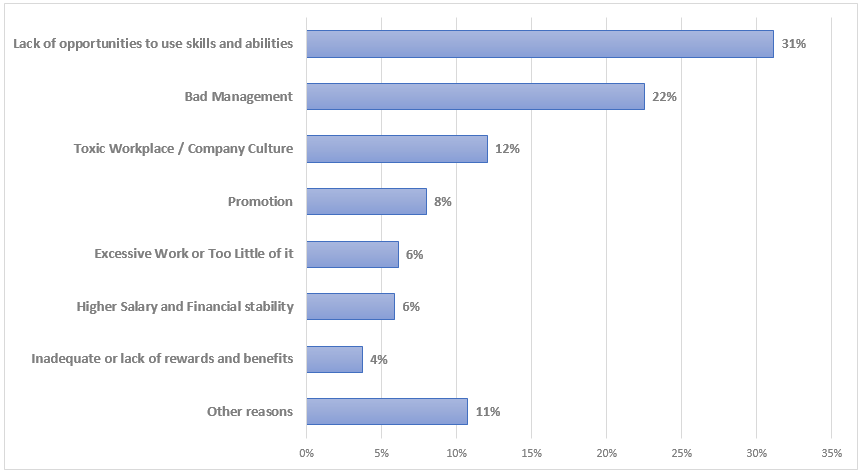My 27-year-old goddaughter just completed her Master’s Degree in Career Counseling and landed her first major full-time position within the University of California educational system. And, she did all this during the Coronavirus pandemic!
What made the difference in her successfully launching her career path you ask? As I observed Emily create her path, it was a strategic, step-by-step, evolving journey that took into account 1.) her current needs and over time 2.) fully embraced her future wants. It involved a conscious willingness to stretch out of her comfort zone while also having the support, coaching, and mentoring from professors, employers, and professionals.
Of course, like each of you, she’ll go through a number of these transitions as she grows in her career and integrates other personal aspects in her life. Happily, she’s discovered a “formula” that will be useful each time she enters a new phase.
You can implement this self-discovery formula too. No matter your age or career and life stage, this approach—a strategic step-by-step, evolving journey—toward your next career/life transition is going to reap you the life and career that you will call “success,” and that will allow you to thrive.
The rest of this article will tackle the following topics if you continue to read through:
- Forging a Career and Life Path You Love
- Salary Breakdowns by Gender and Occupation from PayScale data
- More Examples of Pandemic Career Transition Success
- Ten Year Survey of Job Changers
- Tips to Approach a Job Change

Career coaching helps make your first, or next job, successful. It can lead to a thriving whole life.
Forging a Career and Life Path You Love
Since Emily graduated from Hamline University with a Bachelor’s Degree in Psychology and Communications, she’s forged a career path she loves. Yearning to live on the coast after college, I encouraged her by sharing that for me, living in San Francisco and going to graduate school during my twenties was freeing. I could “become myself.” In the new environment, where no one knew me, I could “Be myself.” While a bit scary, I could stretch into and develop new parts of myself. I thought she could too. It was just the encouragement she needed to follow her dreams!
Strategically reflecting on the ways you’d like to stretch, experiment, and develop new aspects of yourself and your skills can be forged at any point along your career and life path. Taking steps prepares you for the greater responsibility and leadership you wish to grow into.
Exploring the city, odd-jobbing it to pay rent and basic living expenses were paired with volunteer positions in counseling critical to make her confident and stand out in graduate school admissions. This year gave her California State residency from which graduate school was affordable. It got her accepted to her chosen Master’s program at San Francisco State University. Once there she stretched herself in coursework, connecting with profs and mentors, taking on internships in her field of choice. Already very poised, every time we Facetimed I could see her communication skills and confidence growing. I got to see it in her presentation in a lovely virtual celebration with her professors and fellow graduates.
Unexpected Workable Blessings From the Pandemic
At all levels of career development, there’s been a wide spectrum of wonderful and awful circumstances brought on by the pandemic. In the professional world and some business environments, the upside is the freedom and flexibility it has allowed employees and companies.
For Emily, post-graduation transitions appeared seamless, in spite of the pandemic. It appeared seamless while she was diligently submitting job applications and interviewing in her chosen geographic surround. Early on she was offered a full-time contract position in the department she had worked during graduate school. Fortuitous while she continued her search. She was able to come back to her home state of Minnesota, spending time with her mom and friends, while working full-time virtually with her clients, helping to lead a team run virtual career day for students and having 1st, 2nd, and 3rd job interviews—all from her old bedroom!
This flexibility never would have existed in Emily’s counseling field, nor in her schooling or work, without the work-life changes brought on by the pandemic. In your field of work, in your company, it’s important right now to seek coaching to explore all the options the pandemic has positively unleashed if you wish to be ahead of the curve, ahead of opportunities in the making. The world of work will never be the same again, so participating in creating the thriving life you want going forward means stepping out of your comfort zone with guidance, and seeking opportunities. Sometimes they are right in front of your nose. Sometimes they are across the US or around the globe.
Again, Emily knew what she wanted. Full-time. Well paying. Remain in the Bay Area. Stretch her counseling skills to work with the population she most desired. She strategically went after it and while being courted by 2 University of California counseling departments, she was offered the job in a virtual call on a Friday night at 5PM with the 4 top people in the department with whom she’d had 3 interviews!
Emily wanted the position first offered, but she had questions about negotiating specifics of the salary, benefits, and start date. We noted how everything she is learning will benefit her clients going forward! Regarding salary, we discussed how there’s data that earnings in your twenties probably determine income over a lifetime. That women statistically earn far less than men and their salary peaks at a younger age than men’s. So, negotiating from the start (with all your skills and diplomacy) is important, even if it’s just showing them you are confident, savvy—and that you’ll expect bumps at appropriate times.
Who would have thought that the pandemic turning us into a virtual working environment would make a job search in some ways much easier? The offer of the position and welcome to their department also seemed very human, warm, and connected, in spite of being virtual.
More and more it seems the virtual pivot is forcing everyone to become better communicators, more empathic, better listeners—all-around more human. While Emily was naturally developing that skill-set, this year has made it the most highly valued and necessary skill-set for all.

You deserve career coaching that focuses on your whole-life thriving.
More Examples of Pandemic Career Transition Success
Emily is not alone in having the changes of the pandemic possibly work in her favor, and contribute to her early success. Here are just a few other examples of people in successful career transitions in my life, coaching and consulting work recently:
- Andrew has a good job as a marketing leader and is letting his superiors know his desired work-life balance desires while also wishing to grow in his leadership. Andrew’s company values him and knows, that at age 34, he is getting married next year and taking advantage of a 2-3 month sabbatical the company offers their employees.
- This segues right into how many two career transitions are found in one family: Andrew’s own fiance, Melissa age 28, negotiated a new position within one of her company business accounts. She’s also completing her MBA while working. Andrew plans to continue working remotely when they move to the coast for his fiance’s new position later in 2021 when the pandemic settles out.
- Anna, age 23, recently landed a research internship on a high-level medical research team. She’s doing this during her GAP year before attending medical school.
- Thomas, a valued leader in his 40’s, was just promoted to Associate in his architectural firm, while also considering joining his wife’s architectural firm.
- As a result of Thomas being promoted, Jane happily hired a new Senior Architect in her firm.
- Touching base with a National Data Center Solutions company owner this week, after slowing down in work due to not being able to fly around the country for their onsite work, I learned they are gearing up for increased work to come, hiring an experienced engineer and possibly 2 additional projects managers.
- Ellen, a digital asset manager (DAM) in her early 50’s wanted a position calling on her specific expertise. She and her retired husband also wanted to live on the coast. A few months back she got a position on the east coast where they are enjoying a new taste of life!
I could go on with people living out real transitions during these times. Maybe you have a story to share in the comments below. We’d love to hear about your experience.
A 10 Year Survey of 8500 Job Changers
An overview of 10 years of survey responses collected by Jan Tegze, Senior Recruiting Manager at Solarwinds and author of Full Stack Recruiter: The Modern Recruiters Guide, Tegze summarizes Seven Top Reasons Why People Change Jobs. Data from over 8500 individuals is shown in his chart.

Data on 7 Reasons For Job Change from 8500 Participants Over 10 Years by Full Stack Recruiter
If they are still collecting data through this time, it will be interesting to see if the reasons people make changes is very different than previously. I suspect these reasons are fairly stable. How easily or the ways in which changes happen may be different.
- Somewhat more fluid circumstances due to the pandemic
- More professionals taking charge of their career trajectory, learning, and growth
- Hopefully more openness on the part of employers
Causes for a career transition or job change is prompted by 4 forces—external, internal, developmental, or unexpected, often traumatic events.
- External events such as layoffs, mergers, new leadership, or company reorganization are triggers for personal and career shake-up.
- Developmental drivers such as readiness for a mate, family, home, or new personal circumstance can snowball into career changes.
- A divorce, unexpected illness, or disability may also elicit change that impacts your work-life.
- Often it’s an inner need for a greater challenge, typically in a role with increased responsibility, recognition, and compensation that motivates a transition or even a radical change.
Some changes feel like triggers and induce anxiety or desperation, a fight or flight response. We become reactive, making rash choices that may detour a career-life path or worse, result in a lifetime of undesirable consequences.
A better perspective is to approach them as “Choice Points.” When it’s a Choice Point, you have a choice in how you respond or capitalize on any circumstance. Creating a whole-life, an integrated life perspective is an awareness that decisions in one area of your life affect all other areas. So any job, career, or business change is complex.
At each Choice Point you can settle for less, never knowing “what if,” or you can take control and strategically plan how you respond to the choice point so you build toward a better outcome. Thoughtfully create steps that actually lead where you want to go. On the other hand, if you do nothing, you’ll be right where you are now.
Here are some of our top tips to tackle a career transition or job change with clarity and confidence.
(1) Get to Know Yourself
Instead of exiting a job dramatically with negative emotion, seeking a promotion with lots of over-zealous activity, or starting a new venture without a strategic plan and supportive team, a great starting point is to “Stand Still.” Standing Still is taking a breath, framing the discontent as an opportunity. It’s an opportunity to become more self-aware so you assess fully, listen to what the discontent is telling you, and then, from that centered place opening to new possibilities that are right for you.
Finding the right people to guide you there is key. This is where career coaching comes in. Understanding your whole life needs, as well as who you are. These are your strengths, expertise, experience, and essential elements that make you thrive should become part of your self-education. These are best uncovered or clarified with an expert whole-life/career coach.
For more on this topic read my articles:
-
Considering Career Coaching? 3 Ways Career Coaching Can Help You Achieve Your Goals
-
What Do Coaching Clients Say About How Coaching Has Changed Their Lives
-
Many more on how couples manage transitions together are found here.

As an experienced professional you deserve career coaching that matches your skillset, ambitions, and life goals
(2) Stretch Your Skill Set and Be Strategic
People seldom seek change when things are going perfectly. However forward-thinking, experienced professionals, who communicate their needs diplomatically and well, and who take into account the needs of their team and company are often able to negotiate.
Seeking to consciously grow during these times is then a choice versus a push. Because the force of nature is all about growth, if we are not doing so, circumstances will arise to create discontent or circumstances leading to eventual change–desired, planned for, or not.
So the internal or external circumstances leading to the need for work-life change are less important than how you approach it. You don’t have to like change. Just don’t whine or avoid it—embrace it. And even seek to strategically create a change if you are of a growth mindset.
(3) Do Good Work
It goes without saying that while looking you continue doing a good job at work. In fact, on the contrary, be professional, fulfill your responsibilities, you want to make the change without burning bridges and with your head held high. But do it with self-awareness. Again, if you scramble and make a change in a state of anxiety or desperation the chances of your new life or work being truly satisfying are slim.
(4) Preserve Some Time
To explore your discontent and do something new or different in your work-life, you will have to carve out some time. You probably feel you have “no time.” However, time is the top commodity for any real and satisfying change. Be open to new ways you might manage your time wisely and preserve some for yourself.
(5) Conserve Your Energy
Lasting change requires mental energy and sometimes zaps emotional energy. Yet making a transition or job changes that stick—requires emotional and psychic energy.
This kind of energy makes people think they are “doing nothing” or ”wasting time” but it’s often more draining than lots of busywork. No one else can see the energy required, but you’re going to need it. You are going to need time and space to think and envision, to sleep, dream, and rest. Probably while you keep your current work-life and figure out the next strategic action steps.
Start by noticing every place you give without being directly asked for help, or every time you over-give when less is what’s required. People who are discontent are often over-achievers, giving more to others and neglecting their own needs. As some of my clients who have practiced these suggestions, you are probably a great problem-solver, giver, fixer, and everyone around you lets you do it. You have to figure out if that’s what you want to be known for if that’s what your identity is founded on.
(6) Manage Creativity
Top performers use their creative ideas wisely. If you are discontent in your current work-life, it’s important that you learn when and how to share your creative ideas, innovations, solutions, or insights.
I suspect that you have deep-seated creativity that you simply take for granted. You may even be saying, “No that’s not me,” but if we conducted a work-life overview to strategize career choices, you’d probably list many ways in which you applied your creativity—again by helping others achieve their goals.
I’m not suggesting you be withholding. Simply make better choices about what you share. Preserve your ideas, solutions, and creativity so you can learn from it as it bubbles up, so you find a good new home or outlet for it where it is truly welcomed, appreciated, and rewarded.
(7) Safeguard and Grow Your Special Expertise
Expertise is a valuable commodity to be shared at appropriate times with the people who truly see and reward your contributions—versus squandering or hijacking them. First, you have to know yourself (see above.) Then you have to know the best ways to share and negotiate for yourself and your skillset.
You’re probably like my clients many of whom give it away, they are not compensated for it; thus others don’t value you, they take you for granted, you end up resentful. Many of those in management or director level positions make huge amounts of money for others and are not rewarded themselves. Some even practically run companies without being brought on as partners. They are greatly undervalued.
A good career coach can help you assess choice points along your career and life path, when and how to leverage your strengths and negotiate within your company, or negotiate a great next position.
The challenge is to not give away all your expertise during the transition. Do what is required—while you figure out what you really want to do—but do not give away all your goodies! Your expertise is valuable and can make you financially profitable if you put yourself first to figure out your new direction. From that place of clarity, you will be a wise and valued contributor, leading in your work and life.

For more on this topic read my articles:
- 3 Ways Career Coaching Can Help You Achieve Your Goals
- 2 Steps to Create Security When Itching To Leave Your Job
- 7 Ways to Focus When You’re Unhappy and Looking for a New Career
- Couples and Career Transitions: 4 Steps to Maximize Your Success
- What Do Coaching Clients Say About How Coaching Has Changed Their Lives
- Successful Business or Career Transition Planning Should Always Include Your Mate
- Many more on how couples manage transitions together are found here
For more resources and guidance on business, career, and relationship strategies designed to move you and your life further, faster, request your free Discovery Call with Dr. Jan Hoistad today.
- You Want to Grow But Your Business Has Stalled Out — It’s Time For a Reset - January 7, 2025
- Three Ways to Advance Your Career - October 7, 2024
- How to Take Your Business to the Next Level - October 3, 2024

